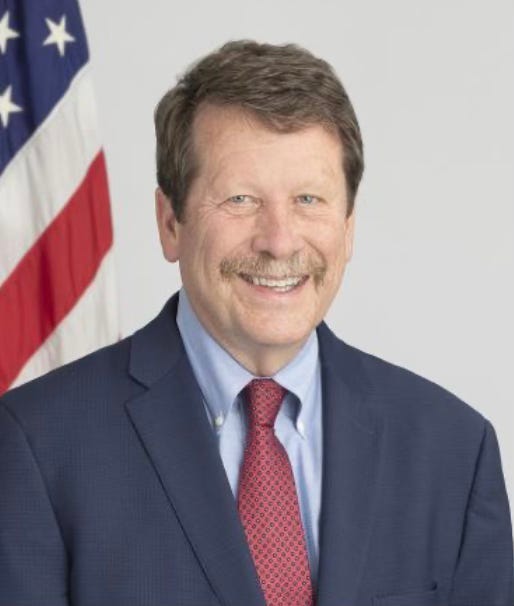On November 15, 2024, CNN star Jake Tapper warned viewers “I hope you like measles” when reporting the Robert F. Kennedy, Jr. nomination to be HHS Secretary. Pharmaceutical company stock prices fell minutes after the Kennedy announcement. This is because Kennedy has been transparent about his goal to place the pharmaceutical industry under closer scrutiny. During his spiel Tapper failed to disclose to viewers a giant-sized conflict-of-interest: Big Pharma is one of CNN’s biggest advertisers. CNN and the other cable news outlets may be raking in one billion dollars or more from pharmaceutical advertising. Of course, CNN and other news programs are not about to bite the hand that feeds them.
The pharmaceutical industry will have spent about $22 billion on advertising in 2024 on all platforms (print, TV, online and social media.) Big Pharma is now the second largest advertiser in America, only trailing consumer packaged goods such as food, beverage, toiletries, and cleaning products.
Big Pharma will spend nearly one-third of its advertising budget, or about $6 billion, on television in 2024. This is nearly double the amount of money spent on TV by the pharmaceutical industry just a decade earlier. This spending includes both prescription and over-the-counter medications. Pharmaceutical advertisements are now the second largest advertising sector on television, following lifestyle and entertainment. Drug advertising is so lucrative to the television industry that about $1.68 billion was spent just on the top 10 most advertised drugs in 2022. Among the largest advertisers is Pfizer, of covid vaccine infamy.
All television advertising from all sectors (e.g. entertainment, drugs, automotive) in 2024 will total about $60.5 billion. This means about 1 in 10 television advertising dollars will have come from the pharmaceutical industry. In other words, Big Pharma advertising revenues are very, very important to the television industry.
Among some of the biggest recipients of the Big Pharma ad dollars are cable news and broadcast (traditional) television news programs. Just how big is this spending? Just in the month of March 2023, the pharmaceutical industry spent nearly $15 million on ABC World News Tonight With David Muir, according to Ad Week. For an entire year this would be $180 million. For just one 30-minute newscast. That is quite the financial windfall.
Other top 10 television drug advertising destinations were also news programs: NBC Nightly News With Lester Holt, Good Morning America, CBS Evening News With Norah O’Donnell, Today and CBS Mornings. Will David Muir, Lester Holt, Norah O’Donnell and the other news anchors report to viewers a negative story about pharmaceutical companies such as Pfizer, Eli Lilly, Johnson & Johnson or Novo Nordisk? Of course not. Big Pharma advertising is less about attracting new customers and more about buying silence from the news industry. In fact, it’s not just silence, but compliance. This explains why news outlets go on the attack against anyone who questions pharmaceutical policies, such as vaccines.
Jake Tapper and everyone else in the news industry has an ethical responsibility to disclose their employers are recipients of billions of dollars in ad spending from Big Pharma. It’s not likely they will do so.
It’s not just drug industry money flowing to America’s newsrooms creating ethical lapses. Conflicts-of-interest is commonplace among US healthcare officials. Since 1981, 10 of the 11 Food and Drug Administration commissioners left the agency to take lucrative jobs with pharmaceutical companies. The exception was Dr. David Kessler who served under George HW Bush and Bill Clinton. After the FDA, Kessler became the dean of Yale School of Medicine.
The current FDA commissioner, Dr. Robert Califf, served as the agency head under Barack Obama, took a job with Big Pharma during the Donald Trump years, and then returned to lead the FDA under Joe Biden. A senate majority confirmed his return to head up the federal regulator despite the obvious ethical baggage. Califf epitomizes the proverbial revolving door and represents a blatant conflict-of-interest. In his case, the senate merely wallpapered over the conflict-of-interest because that’s how Washington, DC operates.
Mark Hyman is a 35-year military veteran and an Emmy award-winning investigative journalist. Follow him on Twitter, Gettr, Parler, and Mastodon.world at @markhyman, and on Truth Social at @markhyman81.
His books Washington Babylon: From George Washington to Donald Trump, Scandals That Rocked the Nation and Pardongate: How Bill and Hillary Clinton and their Brothers Profited from Pardons are on sale now (here and here).





